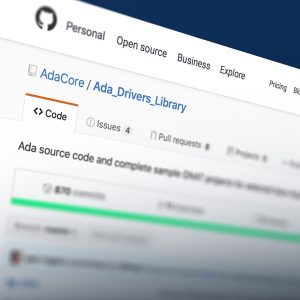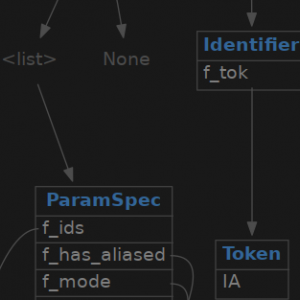
SPARK Tetris on the Arduboy
One of us got hooked on the promise of a credit-card-size programmable pocket game under the name of Arduboy and participated in its kickstarter in 2015. The kickstarter was successful (but late) and delivered the expected working board in mid 2016. Of course, the idea from the start was to program it in Ada , but this is an 8-bits AVR microcontroller (the ATmega32u4 by Atmel) not supported anymore by GNAT Pro. One solution would have been to rebuild our own GNAT compiler for 8-bit AVR from the GNAT FSF repository and use the AVR-Ada project. Another solution, which we explore in this blog post, is to use the SPARK-to-C compiler that we developed at AdaCore to turn our Ada code into C and then use the Arduino toolchain to compile for the Arduboy board.





